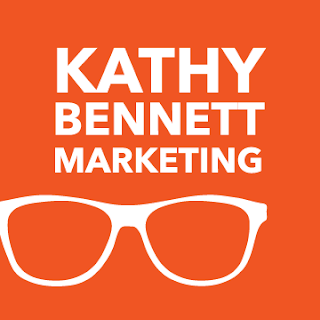How to Use ChatGPT for Marketing Content
March 23, 2023
)
Ok, OK, before we all have a hissy fit over AI taking over the world and ChatGPT taking over the jobs of everyone in marketing and website development, let’s all take a deep breath and understand what we’re really looking at.
Because I’m intellectually curious, when I read that the robots were coming for my job (a great deal of my work is writing web content and digital marketing), I wanted to check it out for myself. I’m a small marketing consultancy and my clients are on the smaller side. But still, I wanted to see what all the fuss was about.
So before I go much further, everyone can rest assured that I’m not using AI-generated text for my client projects. I’ll get into why further down in this piece!
I talked with a fellow web developer yesterday who suggested using ChatGPT for developing blog and web content. Personally, I think the jury is out if this is really a good idea at this point.
First of all, ChatGPT creates nothing new. It merely pulls content from other sources. It’s a “natural language” search tool, meaning that it finds other existing content and aggregates it into a search result that reads like, well, natural language. While some AI generation tools provide a source (Bing), others do not … yet. I want the lawyers to figure out fair use before I subject my clients to a potential copyright infringement lawsuit.
I’ve also heard rumblings that search engines like Google may discourage the use of AI-generated text in their search algorithms. However, I find it hard to believe that if they successfully launch theirs that they’d penalize users of it. I’d like to see how that settles before I load up any client websites with AI content.
Then there’s the accuracy issue. Just ask anyone who has shown up to a business only to find it closed, and that the Google My Business listing was just plain wrong. Because ChatGPT and other AI Chat like Bing pull content from other sources, there is no gatekeeper to determine accuracy. Just for chuckles, I asked Bing to write a blog about a “romantic NH inn” since I’m in the hospitality trade.
The results were laughably inaccurate, citing an Inn that closed years ago in its results. I’m sure that this closed Inn remains out there in the interwebs – garbage in, garbage out. As a content writer, my job isn’t just to write persuasive copy it’s also to fact-check what I write for accuracy. Then there’s the intangible ability to write for a particular audience and understand what drives engagement with readers. Maybe I’m delusional but I have to believe that my years of experience count for something here.
Social media management tool Hootsuite recently launched an AI-generated hashtag tool. I’ve tried it – its results are total garbage. A recent Easter-related post suggested hashtags of “table,” “window,” “person,” etc. You get the picture.
As a writer, I do sometimes have the fear of the blank page – how to get started on a new piece of content. This is where brainstorming with ChatGPT can come in handy. Let’s face it – we all have our favorite vocabulary and phrases. Sometimes I’ve found the tool useful in finding new ways to say the same old thing, kind of like a thesaurus.
In one amusing example, I pulled a phrase out of a ChatGPT generated blog. When my client reviewed the blog they flagged one phrase and one phrase only to remove and “never use again.” Yup, it was the phrase I grabbed from the bucket of ChatGPT-generated ideas. Coincidence? Maybe. But my decades of writing and marketing experience trumped the robots in that instance.
I’m not naive enough to think AI is going away, or that it’s not going to be a game-changer. I’m not here with my buggy-whip shouting that things are just fine the way they are. I suspect this will change the world – especially my marketing-focused world – much the way that the internet changed it earlier in my career. In that instance, I was able to pivot from analog (direct mail) marketing to digital marketing pretty easily. I plan on doing the same with AI. Ultimately the robots need a good marketing mind to make subjective decisions, audit for real-world and real-time accuracy and advise clients on how to tap this incredible tool for their use.
